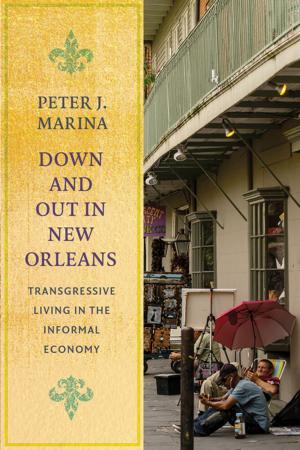Writing the Republic
Liberalism and Morality in American Political Fiction
Fiction & Literature, Literary Theory & Criticism, American, Nonfiction, History, Americas, United States| Author: | Anthony Hutchison | ISBN: | 9780231511902 |
| Publisher: | Columbia University Press | Publication: | August 21, 2007 |
| Imprint: | Columbia University Press | Language: | English |
| Author: | Anthony Hutchison |
| ISBN: | 9780231511902 |
| Publisher: | Columbia University Press |
| Publication: | August 21, 2007 |
| Imprint: | Columbia University Press |
| Language: | English |
In this provocative book, Anthony Hutchison challenges the belief that the American novel is "antipolitical" and condemns the relative absence of American literature in studies of the political novel. In Hutchison's view, our fiction is always informed by the complexities of the American political tradition, and to acknowledge this is to introduce a new, rewarding chapter of critical inquiry into the study of American literature.
Focusing on the works of Herman Melville, Gore Vidal, Russell Banks, Lionel Trilling, and Philip Roth, Hutchison finds a critique of liberalism put forth by classical republicanism, transcendentalism, Marxism, and neoconservatism at their respective moments of historical ascent. He shows how these authors take very specific historical periods and episodes for their subject matter and interrogate, critique, and contextualize pivotal moments in the intellectual history of American liberalism. In their work, liberalism reconstitutes itself in the face of competing ideological pressures, demonstrating that the novel is very much characterized by a "republican" concern with the health of the polity.
Considering such artists, philosophers, and theorists as Ralph Waldo Emerson, Fyodor Dostoevsky, Hannah Arendt, and John Dewey, alongside numerous contemporary commentators and historians, Hutchison repositions American novelists as serious political thinkers. He reveals Melville's Moby Dick to be the formal template for the American political novel and compares and contrasts its embodiment of "republican" fiction with the "democratic" mode Mikhail Bakhtin associates with Dostoevsky. He especially draws attention to the meaning of republicanism in the early national period, the place of abolitionism in the Civil War, and the post-1930s liberal retreat from Left radicalism.
By concentrating on the tension between issues of liberalism and morality in the political thought of these American novelists, Hutchison hopes to advance a more nuanced and textured understanding of the U.S. political tradition. He scrutinizes a number of critical studies and makes a cogent case for a more interdisciplinary approach to the American political novel that focuses less on the politics of representation and more on the representation of politics.
In this provocative book, Anthony Hutchison challenges the belief that the American novel is "antipolitical" and condemns the relative absence of American literature in studies of the political novel. In Hutchison's view, our fiction is always informed by the complexities of the American political tradition, and to acknowledge this is to introduce a new, rewarding chapter of critical inquiry into the study of American literature.
Focusing on the works of Herman Melville, Gore Vidal, Russell Banks, Lionel Trilling, and Philip Roth, Hutchison finds a critique of liberalism put forth by classical republicanism, transcendentalism, Marxism, and neoconservatism at their respective moments of historical ascent. He shows how these authors take very specific historical periods and episodes for their subject matter and interrogate, critique, and contextualize pivotal moments in the intellectual history of American liberalism. In their work, liberalism reconstitutes itself in the face of competing ideological pressures, demonstrating that the novel is very much characterized by a "republican" concern with the health of the polity.
Considering such artists, philosophers, and theorists as Ralph Waldo Emerson, Fyodor Dostoevsky, Hannah Arendt, and John Dewey, alongside numerous contemporary commentators and historians, Hutchison repositions American novelists as serious political thinkers. He reveals Melville's Moby Dick to be the formal template for the American political novel and compares and contrasts its embodiment of "republican" fiction with the "democratic" mode Mikhail Bakhtin associates with Dostoevsky. He especially draws attention to the meaning of republicanism in the early national period, the place of abolitionism in the Civil War, and the post-1930s liberal retreat from Left radicalism.
By concentrating on the tension between issues of liberalism and morality in the political thought of these American novelists, Hutchison hopes to advance a more nuanced and textured understanding of the U.S. political tradition. He scrutinizes a number of critical studies and makes a cogent case for a more interdisciplinary approach to the American political novel that focuses less on the politics of representation and more on the representation of politics.















